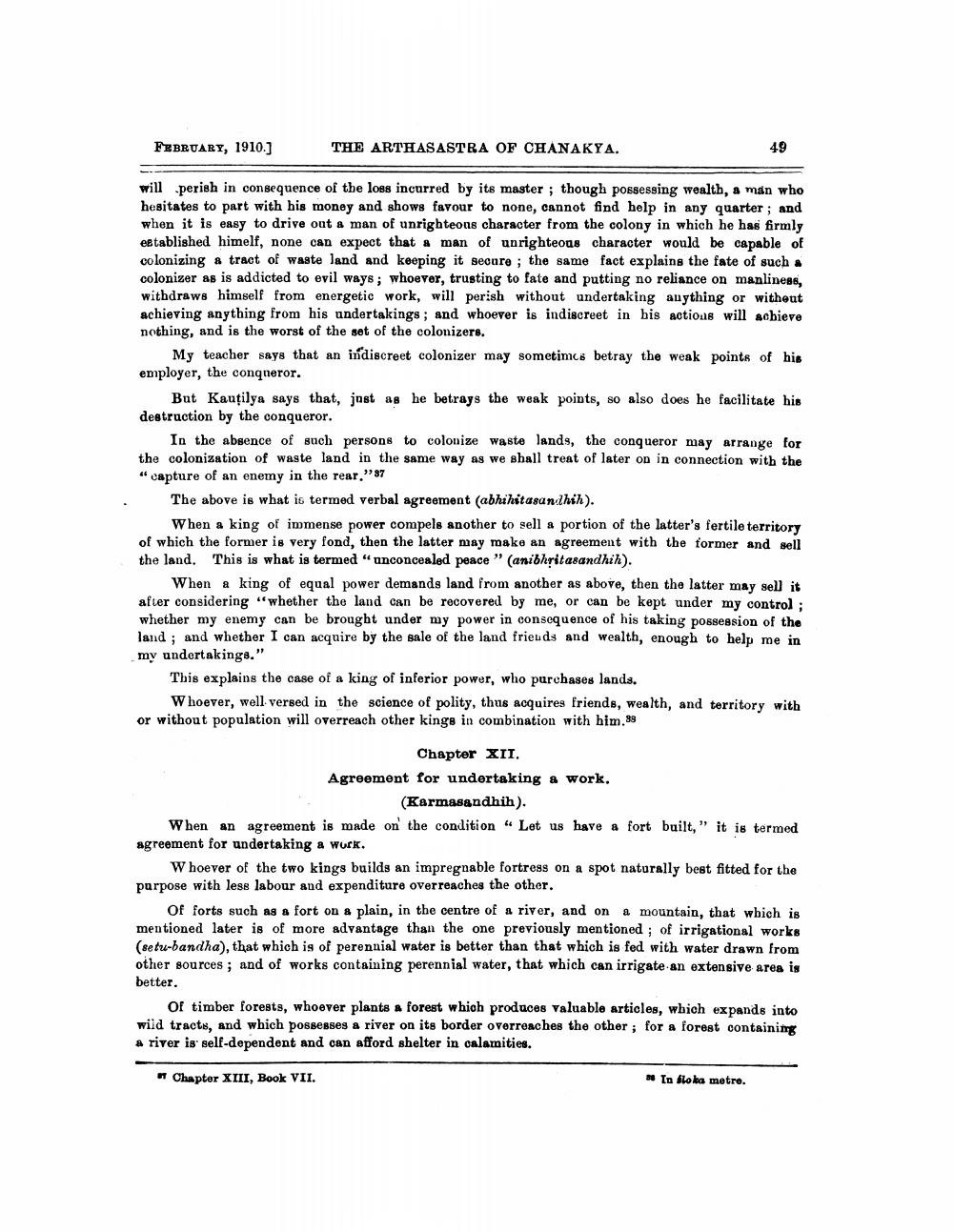________________
FEBRUARY, 1910.)
THE ARTHASASTRA OF CHANAKYA.
49
will perish in consequence of the loss incurred by its master ; though possessing wealth, a man who hesitates to part with his money and shows favour to none, cannot find help in any quarter; and when it is easy to drive out a man of unrighteous character from the colony in which he has firmly established himelf, none can expect that a man of unrighteous character would be capable of colonizing & tract of waste land and keeping it secure; the same fact explains the fate of such a colonizer as is addicted to evil ways; whoever, trusting to fate and putting no reliance on manliness, withdraws himself from energetic work, will perish without undertaking anything or witheut achieving anything from his undertakings; and whoever is indiscreet in his actions will achieve nothing, and is the worst of the sot of the colonizers.
My teacher says that an indiscreet colonizer may sometimes betray the weak points of his employer, the conqneror.
But Kautilya says that, just as he betrays the weak points, so also does he facilitate his destruction by the conqueror.
In the absence of such persons to colonize waste lands, the conqueror may arrange for the colonization of waste land in the same way as we shall treat of later on in connection with the "capture of an enemy in the rear."37
The above is what is termed verbal agreement (abhihitasanthih).
When a king of immense power compels another to sell a portion of the latter's fertile territory of which the former is very fond, then the latter may make an agreement with the former and sell the land. This is what is termed "unconcealed peace" (anibhritasandhih).
When a king of equal power demands land from another as above, then the latter may sell it after considering "whether the land can be recovered by me, or can be kept under my control; whether my enemy can be brought under my power in consequence of his taking possession of the land; and whether I can acquire by the sale of the land friends and wealth, enough to help me in my undertakings."
This explains the case of a king of inferior power, who purchases lands.
Whoever, well versed in the science of polity, thus acquires friends, wealth, and territory with or without population will overreach other kings in combination with him.89
Chapter XII. Agreement for undertaking a work.
(Karmasandhih). When an agreement is made on the condition “Let us have a fort built," it is termed agreement for undertaking a work.
Whoever of the two kings builds an impregnable fortress on a spot naturally best fitted for the purpose with less labour and expenditure overreaches the other.
Of forts such as a fort on a plain, in the centre of a river, and on a mountain, that which is mentioned later is of more advantage than the one previously mentioned ; of irrigational works (setu-bandha), that which is of perennial water is better than that which is fed with water drawn from other sources; and of works containing perennial water, that which can irrigate an extensive area is better.
of timber forests, whoever plants a forest which produces valuable articles, which expands into wild tracts, and which possesses a river on its border overreaches the other; for a forest containing a river is self-dependent and can afford shelter in calamities.
Chapter XIII, Book VII.
* In floka metre.




